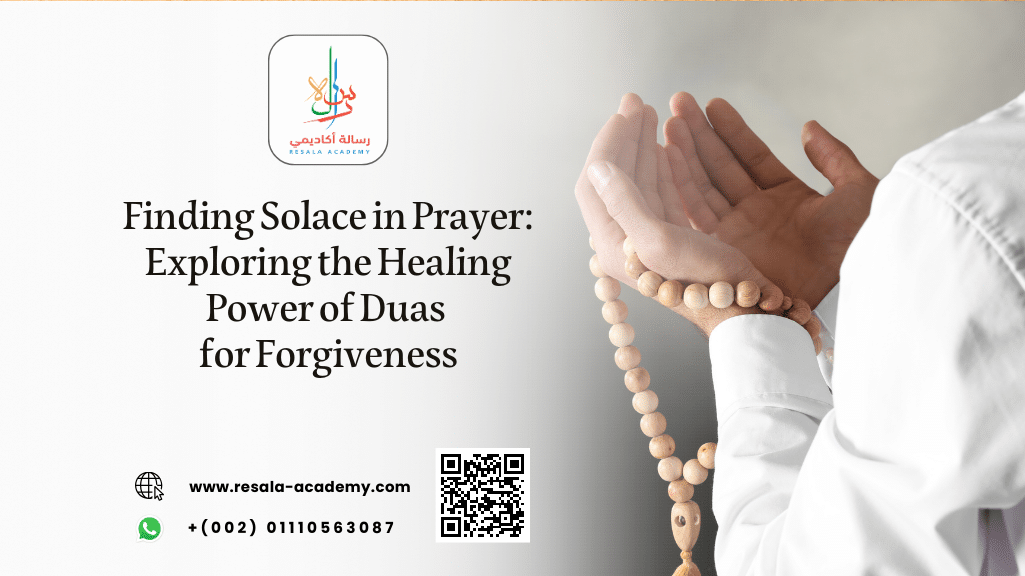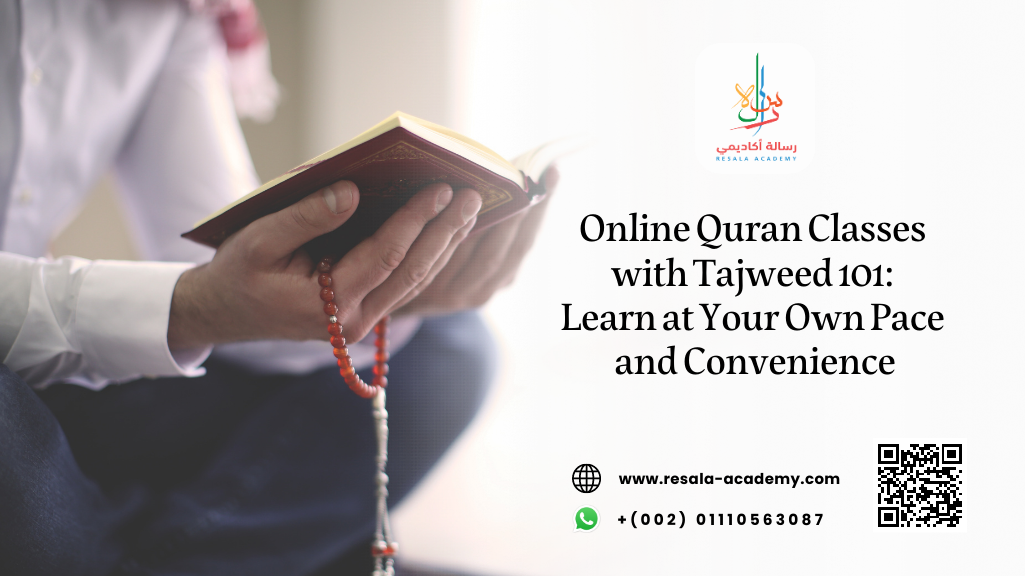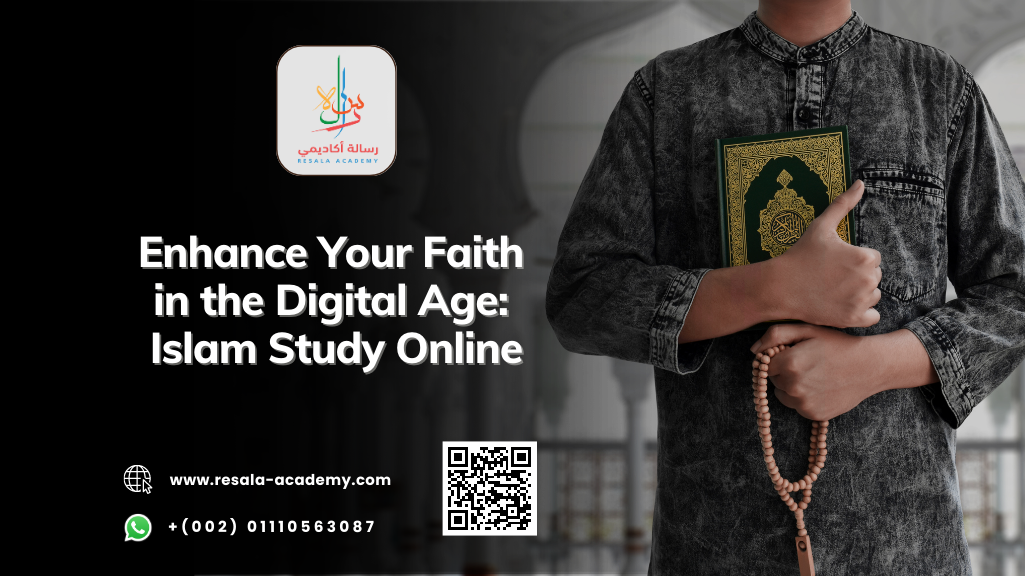Table of Contents
Finding Solace in Prayer: Exploring the Healing Power of Duas for Forgiveness
Step into the realm of prayer, where solace and healing await. In Islam, forgiveness is a powerful concept that holds the key to inner peace and spiritual growth. And what better way to seek forgiveness than through the beautiful practice of dua? Whether you’re seeking forgiveness for your past mistakes or yearning to cleanse your heart from sins big or small, duas for forgiveness are like a soothing balm for the soul.
So join us on this enlightening journey as we explore the profound power of dua for seeking forgiveness. Discover how prophets sought Allah’s mercy with heartfelt supplications and learn about specific duas tailored for different types of sins. Uncover the significance of repentance and protection in seeking divine pardon. And don’t miss out on delving deep into one of the most potent phrases: Astaghfirullah.
Through Resala Academy’s Online Islamic Classes, you can also gain valuable knowledge about other impactful duas for forgiveness that will truly transform your relationship with Allah. So let’s dive in together and embark upon a path toward true repentance, redemption, and spiritual purification.
Forgiveness in Islam
Forgiveness holds immense significance in the beautiful teachings of Islam. It is not only a virtue but also a means to attain spiritual purification and closeness to Allah. In Islamic belief, forgiveness is seen as an act of mercy and kindness bestowed upon us by our Creator.
Islam teaches that seeking forgiveness from Allah is essential for every believer. It acknowledges that as humans, we are prone to making mistakes and falling into sin. But the beauty lies in the fact that no matter how grave or numerous our transgressions may be, Allah’s mercy knows no bounds. He is ever ready to forgive those who turn to Him with sincere repentance.
In Islam, forgiveness isn’t just about seeking pardon for ourselves; it also encourages us to forgive others. By forgiving those who have wronged us, we release ourselves from the burden of resentment and cultivate compassion in our hearts. This practice fosters harmony within society and strengthens the bonds of brotherhood and sisterhood among believers.
Dua For Seeking Forgiveness
Seeking forgiveness is a powerful act that can bring immense peace and tranquility to our hearts. In Islam, dua plays a crucial role in seeking forgiveness from Allah (SWT). Dua for seeking forgiveness is a beautiful way to connect with our Creator and ask for His mercy and pardon.
When we recite the dua for seeking forgiveness, we acknowledge our mistakes and seek repentance wholeheartedly. It is an opportunity to humble ourselves before Allah (SWT) and ask Him to forgive us for our sins. The act of making this dua shows our sincerity in wanting to rectify our wrongdoings and seek His guidance.
In times of distress or when burdened by guilt, turning towards this powerful dua can provide solace like no other. It reminds us that Allah (SWT) is ever-forgiving and merciful, ready to accept our sincere repentance. So let’s not hesitate; let’s start invoking this beautiful dua today as we strive towards becoming better individuals spiritually!
Dua For Forgiveness Made by Prophets
Throughout history, prophets have played a crucial role in guiding humanity towards the path of righteousness. They have faced trials and tribulations, yet their unwavering faith and connection with Allah allowed them to seek forgiveness through powerful duas. Here are some remarkable dua for forgiveness made by the prophets:
1. Prophet Adam (AS): “O our Lord! We have wronged ourselves. If You forgive us not and bestow not upon us Your Mercy, we shall certainly be of the losers.”
2. Prophet Yunus (AS): “There is no deity except You; exalted are You. Indeed, I have been one of the wrongdoers.”
3. Prophet Ibrahim (AS): “My Lord, indeed they have led astray many among the people… So pardon those who repent and follow Your way…”
4. Prophet Muhammad (SAW): “O Allah! Forgive my sins as far as you know them better than me!”
These prophets recognized their shortcomings and sought forgiveness with humility and sincerity.
Their duas serve as a source of inspiration for believers today to turn to Allah in times of need or regret.
By reciting these profound prayers from the heart, individuals can seek solace in knowing that even great prophets acknowledged their mistakes and found redemption through sincere supplication to Allah’s infinite mercy.
Seeking forgiveness is an integral part of one’s spiritual journey towards self-improvement and closeness to Allah Almighty. May we all be guided by the examples of the prophets and continuously seek forgiveness from our Lord.
Dua For Various Types of Sins
When it comes to seeking forgiveness, Islam provides us with a treasure trove of duas that cater to various types of sins we may have committed. These powerful supplications serve as a means for us to turn back to Allah and seek His mercy and forgiveness.
No matter what transgressions we have committed, whether they be minor or major, intentional or unintentional, there is always a dua available for us to seek redemption. From the simplest acts of disobedience to more grievous offenses, these duas help cleanse our hearts and purify our souls.
Whether it’s seeking forgiveness for lying, cheating, backbiting, or even neglecting our prayers—the duas in Islam cover every aspect of sin. They remind us that no matter how far we may have strayed from the path of righteousness, Allah’s mercy is always within reach if we sincerely repent and ask for His forgiveness.
So let us not despair when faced with the weight of our mistakes. Instead, let us turn towards these powerful duas that not only offer solace but also provide hope for redemption. Through these supplications, we can find peace in knowing that Allah is forgiving and compassionate towards those who sincerely seek His pardon.
Dua for Repentance
We all make mistakes. It’s a part of being human. But what sets us apart is our ability to seek forgiveness and change our ways. In Islam, repentance holds great significance, as it allows us to cleanse our souls and seek Allah’s mercy.
Repentance is not just about saying sorry; it involves true remorse for our actions and a sincere intention to never repeat them. The dua for repentance helps us express this heartfelt remorse and seek forgiveness from Allah.
When we recite the dua for repentance with utmost sincerity, we acknowledge our wrongdoings, ask for forgiveness, and commit ourselves to lead a righteous life going forward. It is an opportunity for self-reflection, growth, and transformation.
Through the power of dua for repentance, we can find solace in knowing that Allah is ever-merciful and forgiving. It reminds us that no matter how grave our sins may be, there is always hope for redemption if we turn back to Him sincerely.
So let us take advantage of this beautiful gift bestowed upon us by reciting the dua for repentance regularly. Let it serve as a reminder of our humanity and encourage us to strive towards becoming better individuals every day.
Dua For Forgiveness and Protection
When it comes to seeking forgiveness and protection, there is a dua in Islam that holds immense power. This dua not only helps us seek forgiveness for our sins but also serves as a shield against any harm or evil that may come our way.
In times of hardship or when we feel overwhelmed by the weight of our mistakes, reciting this powerful dua can bring us solace and comfort. It reminds us that no matter how far we may have strayed from the right path, Allah’s mercy is always within reach.
By uttering these words with sincerity and conviction, we are not only seeking forgiveness from Allah but also asking Him to protect us from any negative influences or temptations that may lead us astray again. It is a humble plea for His guidance and safeguarding.
So whenever you find yourself burdened by guilt or in need of protection, turn to this dua with an open heart. Let its healing power wash over you, soothing your soul and bringing you closer to Allah’s infinite mercy and love.
Importance of Dua for Forgiveness in Islam
In the beautiful religion of Islam, forgiveness holds immense importance. It is a means to cleanse our souls from the burdens of sin and attain peace in our hearts. And what better way to seek forgiveness than through dua? The act of supplicating to Allah, seeking His mercy and pardon, is an integral part of Islamic practice.
Dua for forgiveness serves as a bridge between us and our Creator, allowing us to humbly acknowledge our mistakes and ask for His divine forgiveness. It is a reminder that no matter how grave or numerous our sins may be, Allah’s mercy surpasses them all.
Through dua for forgiveness, we not only seek absolution but also strengthen our relationship with Allah. It reminds us of His infinite compassion and encourages self-reflection, leading us towards spiritual growth.
Moreover, dua for forgiveness acts as a source of solace during times of guilt or remorse. It helps alleviate the burden on our hearts by offering hope that redemption is possible through sincere repentance and seeking Allah’s mercy.
So let us embrace the significance of dua for forgiveness in Islam as we strive to purify ourselves spiritually and find tranquility in knowing that Allah’s grace knows no bounds.
The Power of Astaghfirullah
Astaghfirullah, a simple yet mighty dua for seeking forgiveness. This powerful phrase holds immense power in Islam and is often repeated by Muslims seeking redemption. The beauty lies in its simplicity, as it can be recited anytime, anywhere, allowing one to connect with the divine and seek solace.
The power of Astaghfirullah lies in its ability to cleanse the soul and bring about inner peace. By sincerely uttering these words, one acknowledges their mistakes and seeks forgiveness from Allah. It serves as a reminder that we are all fallible beings who make errors but have the opportunity to rectify them through sincere repentance.
Astaghfirullah also acts as a shield against negative influences and temptations. It helps us resist the lure of wrongdoing by reminding us of our moral obligations towards ourselves and others. By constantly seeking forgiveness through this dua, we strengthen our relationship with Allah and strive towards becoming better individuals.
In times of distress or spiritual turmoil, Astaghfirullah provides solace like no other. Its profound impact on our emotional well-being cannot be understated. With each repetition of this powerful phrase, we release burdens from our hearts and find comfort in knowing that Allah’s mercy is boundless.
Learn Other Powerful Duas for Forgiveness with Resala Academy’s Online Islamic Classes
Looking to expand your knowledge and deepen your connection with Allah? Look no further than Resala Academy’s Online Islamic Classes! Our academy offers a wide range of courses that can help you learn other powerful duas for forgiveness.
In these classes, you’ll have the opportunity to study under knowledgeable instructors who will guide you through the process of understanding and reciting these transformative prayers. Whether you’re a beginner or have been practicing Islam for years, our online classes are designed to accommodate all levels of experience.
By enrolling in Resala Academy’s Online Islamic Classes, you’ll not only gain access to valuable resources but also join a community of like-minded individuals who are on their spiritual journeys. Together, we can support one another as we seek forgiveness and strive towards becoming better Muslims.
Don’t miss out on this incredible opportunity to strengthen your relationship with Allah through the power of dua. Enroll in Resala Academy’s Online Islamic Classes today and embark on a journey toward healing, forgiveness, and spiritual growth.
FAQs
1. Can Dua help in seeking forgiveness?
Absolutely! Dua is a powerful tool that connects us to Allah and allows us to seek His forgiveness. It is a means of expressing our remorse, repentance and asking for His mercy. The Prophet Muhammad (peace be upon him) said, “Supplication (dua) is worship.” So when we sincerely make dua for forgiveness, it can have a profound impact on our spiritual well-being.
2. Are there specific duas for different types of sins?
Yes, indeed! Islam teaches us that there are specific duas for seeking forgiveness based on the nature of our sins. Whether it’s seeking forgiveness for lying, backbiting, or even major sins like adultery or theft, there are supplications tailored to each situation. These duas serve as a reminder that no matter how big or small our transgressions may be, Allah’s mercy and forgiveness are always within reach.
3. How often should I make dua for forgiveness?
The beauty of dua is that it has no limits or restrictions. You can make dua as often as you want – whether it’s daily, weekly, or whenever you feel the need to seek Allah’s pardon. The more sincere and consistent you are in making dua for forgiveness, the greater your chances of experiencing its healing power in your life.
Conclusion
In the journey of life, we all make mistakes and stumble upon various sins. However, finding solace in prayer can bring us closer to forgiveness and healing. The power of dua for forgiveness is unparalleled in Islam. It serves as a means to seek repentance, protection, and mercy from Allah.
Through heartfelt supplications, we have the opportunity to connect with our Creator and ask for His forgiveness for our transgressions. Whether it is seeking forgiveness for specific sins or making general dua for repentance, these sacred prayers hold immense significance in our spiritual growth.
The prophets before us set exemplary standards by making powerful duas for forgiveness during their trials and tribulations. These include Prophet Adam’s plea after leaving Paradise, Prophet Yunus’ supplication while trapped inside the belly of a whale, and Prophet Ibrahim’s prayer when facing challenges from his people.
Astaghfirullah holds remarkable power as a simple yet profound phrase that seeks Allah’s forgiveness. Uttering this phrase sincerely can open doors toward redemption and inner peace.
If you want to deepen your understanding of Islamic teachings on duas for forgiveness or explore other potent prayers in Islam, consider joining Resala Academy’s Online Islamic Classes. Here, you can learn from knowledgeable instructors who guide you through the wisdom of Quranic verses and Hadiths related to seeking divine mercy.
Remember that true repentance involves sincere remorse accompanied by efforts to rectify one’s actions. Alongside regular recitation of duas for forgiveness, strive towards self-improvement and righteous deeds. Seek knowledge about Islam so that you may lead a more fulfilling spiritual life filled with love, compassion, gratitude, and humility towards Allah Almighty.
May the healing power of dua always guide us toward seeking Allah’s mercy, and forgiveness, and ultimately attaining eternal bliss!




